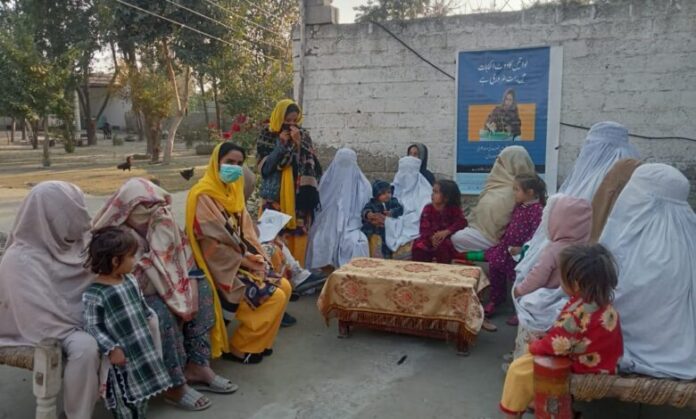
During the awareness campaign, a mother of five approached and expressed her desire to vote, but her male family members deemed it awkward to accompany her to the Nadra office. Shehla, from Peshawar, has been leading an awareness campaign for the past two months, focusing on women’s participation in the electoral process and its significance in the suburban areas.
Shehla and her team travel to various areas and educational institutions, encouraging women to obtain identity cards, actively participate in the electoral process, and vote voluntarily to address the underrepresentation of women in politics.
The 2023 census, available on the Pakistan Bureau of Statistics website, reveals the country’s total population to be 24 crores, 14 lahks 99 thousand 431, with Khyber Pakhtunkhwa’s population at 4 crores 8 lahks 56 thousand 97.
Also Read: From Simplicity to Extravagance: Unraveling the Modern Pursuit of Luxury
In the 2018 general elections, women’s voter turnout was 40 percent, with less than 10 percent in two constituencies, leading to re-election orders. Shehla forms groups of women and provides information on the election process, arranging NADRA mobile vans for ID card registrations.
Shehla emphasizes that many women lack an understanding of why they vote, and those who do often vote according to the wishes of the male head of the family. She stresses the constitutional and legal right of every human being to vote.
According to the Election Commission, before the 2018 general elections, the country had 10 crore 59 lakh 55 thousand 409 registered voters, which has now increased to 12 crores, 85 lakhs 85 thousand 760. In Khyber Pakhtunkhwa, there are 2 crore 19 lakh 28 thousand 119 registered voters, with 54.47 percent male voters and 45.53 percent female voters.
Shazia, a 35-year-old housewife from Mathra, attended an election awareness seminar for the first time. She acknowledges the discouragement women face from men to stay home during elections and expresses hope after learning about her right to vote.
In 2017, the Election Commission of Pakistan enacted a law stipulating that if the proportion of women’s votes is not 10% in any constituency, the election results for that constituency will not be accepted.
Naila Altaf Tori, a women’s rights advocate, highlights the influence of men in tribal and backward areas, preventing women from voting or directing their votes towards male-favored candidates. Women need to be aware that their votes shape their representatives’ decisions regarding their future.
Naila emphasized that stringent customs are a significant factor limiting women’s participation in the electoral process. In backward areas, men often find it inappropriate for women to be present where men gather. To encourage women’s voting, Naila suggests going to these areas, providing necessary facilities, and ensuring easy access to polling stations.
Tori questioned the quality of democracy and elections if half of the population, comprising women, does not participate equally in the process. Highlighting the need for increased awareness and facilitation in these areas, Naila advocates for making the voting process accessible and straightforward for women.
After the FATA merger, the Election Commission reported a total turnout of 26.27 percent in 16 provincial constituencies of tribal districts. The highest turnout was in PK 109 district Kurram at 40.10 percent, while the lowest was in PK 113 North Waziristan at 16.10 percent. Male voters had a total turnout of 31.42 percent, and female voters had 18.63 percent.
Maulana Khanzeb, a member of the Provincial Working Committee of Khyber Pakhtunkhwa Awami National Party, emphasizes that the Islamic constitution and traditions grant women the right to participate in the political and electoral process. The party actively promotes women’s participation, organizing awareness seminars, and including the protection of women’s rights in its manifesto.
Provincial Election Commissioner Khyber Pakhtunkhwa Shamshad Khan, addressing a voting importance ceremony in Peshawar, highlighted the Election Commission’s role in ensuring transparent and unbiased elections. The commission is striving to reduce the gender gap in voter turnout, considering the exclusion of women from voting a legal offense.
Shamshad Khan disclosed that in Khyber Pakhtunkhwa, there is a significant gender gap, with two million more male voters than female voters. An awareness campaign, supported by the International Foundation for Electoral System and NADRA, aims to close this gap. The Provincial Election Commissioner expressed hope that the number of registered women voters in the upcoming general elections will surpass previous figures.

